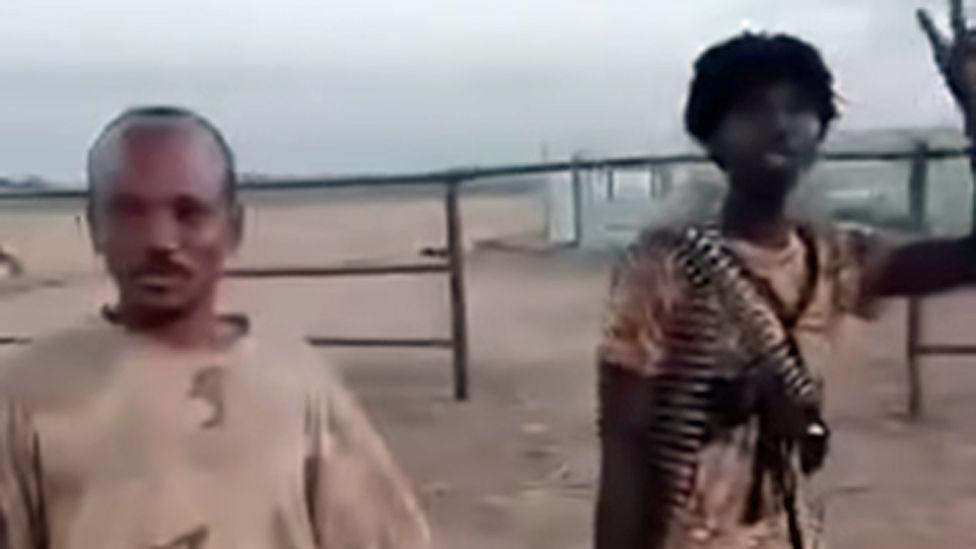
Escalation of Conflict in El-Fasher
The Sudanese paramilitary group Rapid Support Forces (RSF) launched a significant attack on the besieged city of El-Fasher, marking a dramatic escalation in the ongoing conflict. According to witnesses, the RSF stormed the city on Friday, engaging in a battle that lasted seven hours. During this time, they managed to capture key locations such as a cattle market, a prison, and a military base. The RSF also broadcast videos showing their fighters walking through empty stockyards, highlighting their temporary control over parts of the city.
This marked the first large-scale entry of RSF fighters into El-Fasher since the siege began 15 months ago. The city has been a focal point in the struggle for control of western Darfur, with both the army and the RSF vying for dominance. On Saturday morning, the Sudanese army retaliated, successfully pushing the RSF back beyond the city's boundaries. However, the situation remains dire, with local residents describing El-Fasher as a "death trap."
A City Under Siege
Mathilde Vu, from the Norwegian Refugee Council (NRC), emphasized the severity of the situation, stating that the city is experiencing daily shelling and attacks on civilian infrastructure. She highlighted the efforts of local volunteers who are risking their lives to provide food to starving residents. Siddig Omar, a 65-year-old resident, recounted how the RSF entered the city from the south and southwest, using trenches dug around the city for their operations. According to the army, this was the 220th offensive by the RSF against El-Fasher.
Despite the army’s recent success in pushing back the RSF, the violence continued throughout Saturday. Mr. Omar reported that RSF shelling, including the use of drones, resulted in the death of five civilians near his home. The conflict has had devastating consequences, with more than 150,000 people killed and about 12 million displaced across Sudan. The United Nations has labeled this crisis as the world's largest humanitarian disaster.
The Human Cost of War
El-Fasher is now the only city in Darfur controlled by the military, but communication blackouts make it challenging to verify information from the area. Only those with satellite internet connections can be reached, leaving much of the population isolated. The RSF’s latest offensive followed weeks of artillery and drone attacks, with the group recently deploying large drone aircraft.
The army accuses the United Arab Emirates (UAE) of funding the RSF, an allegation the Gulf state denies. This weekend’s attack occurred three months after the RSF overran Zamzam camp, which had been the largest displacement camp in the country. Many residents fled to El-Fasher or attempted to reach Tawila, 60 km away.
Ms. Vu described the desperate conditions faced by those fleeing to Tawila, where people are arriving with no food, water, or shelter. Nearly 379,000 people have now sought refuge there, facing a cholera outbreak and the threat of heavy rain destroying makeshift shelters.
Desperation and Calls for Aid
Residents of El-Fasher have spoken out about their dire situation, describing a lack of food, medicine, and work. One man said, “There is no bread, no food, and no work to be found. Even if you have money, there's nothing available in the markets to buy.” Another mentioned the reliance on "ombaz," a food waste product from peanut shells, which is no longer available due to the shutdown of peanut factories.
Ms. Vu criticized the international community’s lack of engagement with the warring parties and their backers, noting that decreasing funding has worsened the situation on the ground. She added that residents rely heavily on the solidarity of others, sharing whatever little food they have.
International Concerns
Last week, the International Criminal Court (ICC) stated there were "reasonable grounds" to believe war crimes and crimes against humanity are being committed in Darfur. Allegations of war crimes have persisted for two years, and in January 2025, the U.S. determined that the RSF and allied militias had committed genocide against the region’s non-Arab population.
As the conflict continues, the need for international aid and intervention becomes increasingly urgent. The suffering in El-Fasher and other affected areas underscores the importance of global attention and support to alleviate the humanitarian crisis.
Komentar
Posting Komentar